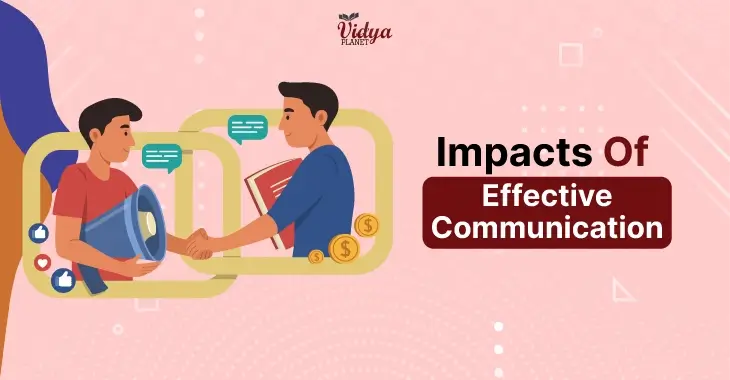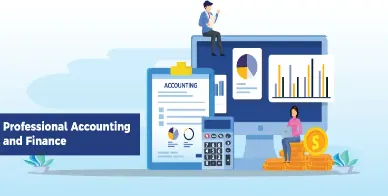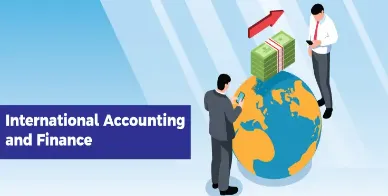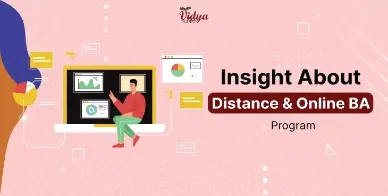
Communication: Importance and benefits, types, and ways to improve them
Discover the significance and advantages of effective communication, explore different communication types, and learn actionable strategies to enhance your communication skills. Elevate your personal and professional relationships through improved communication
Mastering Communication: Understanding Its Importance, Benefits, Types, and Strategies for Improvement
Success in any endeavor, whether it be personal or professional, depends on effective communication. It enables individuals and groups to exchange ideas, work together to find solutions to issues and forge close bonds. Effective communication necessitates not only the expression of ideas and thoughts clearly and succinctly but also attentive listening and comprehension of the intended message.
Clarity is one of the guiding principles of successful communication. This entails using language that the target audience can understand and expressing oneself succinctly and directly. Eliminating ambiguity and making intelligent word choices can help to guarantee that the intended message is accurately communicated whether you're speaking to someone in person, writing an email, or giving a presentation.
Active listening is a crucial component of good communication. Communication needs to be both-sided to be an effective one. Both the listener and the speaker should pay attention to every detail that is shared and received. Many people have a propensity to pay too much attention to what they want to say and not enough attention to what the other person is saying.
In addition to hearing what is being said, active listening involves focusing on nonverbal signs including body language and facial expressions. Understanding the other person's point of view completely makes it simpler to reply effectively and prevent misunderstandings.
Importance and Benefits of Effective Communication
A good communication skill is an essential part of an effective communication. It helps people express their thoughts and feelings in a meaningful way that can be comprehended easily.
Good communication skills are important in many facets of life and have many important advantages, such as:
1. Clear and accurate delivery of information: Effective communication ensures that information is conveyed accurately and understandably. This reduces the likelihood of miscommunication, uncertainty, and mistakes.
2. Establishing and sustaining healthy connections: Strong relationships with family, friends, coworkers, and romantic partners can be developed and maintained with effective communication. Mutual regard, understanding, and trust are all fostered by open communication.
3. Success in the workplace: Effective communicators are in high demand. Employers favor people who can communicate well, actively listen to others, and work well with others. Building relationships with clients, negotiating deals, and settling disputes all benefit from effective communication.
4. Improved problem-solving: Successful problem-solving requires effective communication abilities. If every detail is easily comprehendible then the communication is considered to be two-way. With the use of effective communication, people can easily express their opinions, thoughts, and beliefs as well as cooperate to find answers.
5. Better personal development: Effective communication abilities support personal development. They help people communicate their needs, feelings, and objectives clearly, which improves self-awareness and self-advocacy.
Ways To Achieve Effective Communication
Good communication skills require time and repetition to develop. The following actions can help you communicate more effectively:
1. Active listening: Focus on the speaker and demonstrate that you are interested in what they are saying. Stay out of their way and consider their perspective before responding.
2. Non-verbal Cues: Pay attention to your body language and nonverbal indicators, such as your posture, eye contact, and facial expressions. These factors can significantly affect how other people interpret your message.
3. Clarification and feedback: If you need more information or are unsure about something, ask for clarification. Additionally, it's crucial to provide individual comments to demonstrate your understanding of their ideas and points of view.
4. Understanding and empathy: Make an effort to comprehend and feel what others are going through. This makes it possible to connect and communicate more effectively.
5. Work on speaking clearly and concisely: Practice communicating effectively. Use language and tone that are appropriate for the various contexts and target audiences. Speaking exercises can be done in front of a mirror or with a reliable buddy.
6. Conflict resolution: Develop positive strategies for handling disputes and conflicts. Finding consensus through courteous, honest discussion and listening to all sides of an issue entails this.
7. Written communication: Work on drafting emails, reports, and other types of written communication clearly and succinctly. Review and edit your writing to make sure it is accurate and clear.
.webp)
Types of Communication
Communication is a key to every solution. Given below are some of the types of communication required for a fruitful interaction:
- Verbal Communication- The sharing of information, ideas, and sentiments through spoken words is referred to as verbal communication. It is one of the most crucial means of communication and is extremely important in both private and public contexts.
Verbal interaction is the main form of social interaction in daily life. It enables us to communicate our ideas and emotions, exchange knowledge, and establish connections. Effective verbal communication skills are crucial for getting our point across and being understood by others, whether we're talking to friends, engaging in a meeting at work, or presenting a presentation.
- Non-verbal Communication- It is a rich and complicated method of communication. It includes tone of voice, posture, eye contact, posture, facial expressions, gestures, and body language. Our ability to communicate effectively and better understand people can be considerably improved by being aware of and correctly reading these nonverbal signs.
Gestures are bodily gestures used to express oneself or send a message. They can be produced with the hands, arms, or body. It is crucial to be mindful of cultural differences while interpreting gestures because they can differ among countries and societies. A thumbs-up gesture, for instance, could be disrespectful in one culture while denoting approval in another. Similar to how a head nod can signify agreement or comprehension in some situations while denoting dissent in others.
- Written Communication- It is a form of communication that is expressed in writing and is known as written communication. It is a fundamental ability that is important in both professional and academic settings as well as in private settings. Effective written communication may have a significant impact on how your message is received and interpreted, whether it is in an email, report, letter, or social media post.
The durability of written communication is one of its main benefits. Written messages can be consulted, examined, and archived for later use, unlike verbal communication. This makes it a priceless tool for recording agreements, giving directions, and disseminating crucial information.
- Interpersonal communication- Interpersonal communication is the process by which people exchange thoughts, feelings, and information with one another. It is a key component of human contact that affects many areas of our lives, including interpersonal relationships, work environments, and social interactions.
Non-verbal cues like facial expressions, body language, and tone of voice are only a few of the non-verbal clues that go into effective interpersonal communication in addition to the spoken word. It is crucial for establishing and preserving long-lasting bonds, generating compassion and empathy, and settling disputes.
- Public Speaking- A powerful method of communication, public speaking has been used for ages to educate, motivate, and entertain audiences. Effective public speaking is a useful ability that may have a significant impact on both personal and professional success, whether it's giving a speech in front of a large audience or presenting ideas in a boardroom meeting.
Public speaking is really about engaging an audience. Not only is it important to provide information, but it's also important to engage audience members, affect their attitudes and feelings, and leave a positive impression. A good public speaker may captivate an audience, persuade listeners of his or her points, and inspire action.
By inculcating the core value of effective communication and by using various ways of communicating with people, an individual can improve themselves personally and professionally.
Signs of a bad communicator:
There are various grounds on which an individual communication skill can be judged:
- Lack of clarity: People who communicate poorly frequently struggle to make their ideas and thoughts apparent. They could employ jargon, muddled language, or ambiguous remarks that make it hard for others to grasp what they are saying.
- Lack of active listening skills: People with poor communication skills frequently have little capacity for active listening. Effective communication can be hampered by their propensity to cut off, discard, or ignore other people's ideas and opinions.
- Non-verbal cues: People who struggle to express themselves effectively might avoid eye contact, fidget, or use defensive body language. These signs of discomfort, boredom, or disinterest might make it difficult to communicate effectively.
- Lack of empathy: People with poor communication skills frequently find it difficult to put themselves in others' situations and comprehend their viewpoints and emotions. They could fail to take into account the wants and feelings of others, which can cause misunderstandings and disputes.
- Lack of flexibility in communication style: For communication to be effective, the audience and situation must be taken into account. Poor communicators could adopt a one-size-fits-all philosophy and neglect to modify their vocabulary, tone, or delivery to effectively communicate with various audiences.
- Lack of confirmation and feedback: Ineffective communicators frequently do not ask for others' confirmation or feedback to ensure mutual understanding. They could assume what people know or need, which could result in misunderstandings and lost opportunities for clarification.
- Conflicting or inconsistent messages: Poor communicators may convey contradicting information through their words, deeds, or body language. Others may become perplexed and distrustful as a result of this contradiction.
- Difficulty in properly expressing emotions: People with poor communication skills may find it difficult to convey their sentiments. They could suppress their feelings or overreact, which can result in misunderstandings and make it challenging to forge deep connections.
- Lack of diplomacy: People who communicate poorly frequently lack tact in their interactions. They might speak harshly or aggressively, criticize or denigrate other people, or fail to take the repercussions of their words into account. Relationships may suffer, and effective communication may be hampered.
- Inability to resolve conflicts or disagreements: People with poor communication skills may find it difficult to resolve problems or disagreements positively. They might completely avoid disagreement, act aggressively or defensively, or fail to reach a compromise or common ground.
Communication Skills Courses
Various courses are available on both online and offline platforms. The courses help in developing communication skills in numerous ways:
- multiple universities offer communication skill training courses both online and offline mode. The subjects covered in these courses comprise public speaking, business writing, and conflict resolution.
- Some non-profit organizations like Toastmasters International assist people in upgrading their communication, leadership, and leadership skills. The club of the organization is based globally and provides a safe place for practicing and upgrading their communication skills.
- You can enhance your communication skills by taking one of several online courses. On the platforms of Udemy, Coursera, and LinkedIn Learning, you may take courses in interpersonal communication, public speaking, and writing.
- Some coaches specialized in assisting clients in strengthening their communication skills. These coaches might work with you one-on-one to pinpoint potential growth areas and offer personalized guidance.
- It could be advantageous to role-play communication techniques. You can do this in a group environment or with a partner so that you can test out various communication situations and get feedback.
Why active learning is so important in communication skills?
For many reasons, effective communication is essential in interpersonal relationships.
1. Understanding: Good communication makes sure the recipient fully comprehends the message being sent. It avoids misconceptions and uncertainty that could result in mistakes, disagreements, or unwanted results.
2. Relationship building: Strong and productive relationships, both personal and professional, are built based on effective communication. It fosters mutual respect, trust, and understanding, all of which are necessary for productive interactions and teamwork.
3. Collaboration: Teamwork and collaboration are encouraged through effective communication. It enables people to communicate their views, ideas, and knowledge, which improves problem-solving, innovation, and group decision-making.
4. Impact and influence: People who communicate well can express their ideas, beliefs, and feelings convincingly. It improves their capacity to persuade others, get acceptance for their ideas, and have a beneficial effect on people and organizations.
5. Conflict management: Managing differences and resolving conflicts require effective communication. It facilitates candid communication, promotes attentive listening, and aids in identifying points of agreement. Consequently, there is a greater chance of coming up with solutions that benefit everyone and a better understanding of one another's viewpoints.
Communication Skill Improvement Books
Your career, interpersonal relationships, and self-confidence may all benefit from improving your communication abilities. Spend some time developing these abilities, and you'll see a difference in the quality, quantity, and impact of your talks. You can improve your communication skills by reading any number of outstanding literature.
- Kerry Patterson, Joseph Grenny, Ron McMillan, and Al Switzler - " Crucial Conversations: Tools for Talking When the Stakes Are High. " This book offers useful tools and ideas for dealing with challenging talks and enhancing communication in high-stakes circumstances.
- Dale Carnegie's " How to Win Friends and Influence People? " - This classic book on interpersonal communication teaches you how to develop solid connections and successfully interact with others.
- Stephen R. Covey's " The 7 Habits of Highly Effective People. " - This book covers a wide range of issues relating to personal and professional growth, such as communication skills, time management, and goal-setting.
- Marshall B. Rosenberg's " Nonviolent Communication: A Language of Life. " focuses on compassionate communication to overcome problems and strengthen relationships.
- Carmine Gallo's book ". Talk Like TED: The 9 Public-Speaking Secrets of the World's Top Minds. " provides insights into the approaches and strategies of some of the world's most successful public speakers.
Frequently Asked Questions (FAQs).
What are the four fundamental communication skills?
The four fundamental communication skills are:
- Listening
- Speaking
- Reading
- Writing
What are communication skills?
Effective and efficient communication is the ability to convey information or ideas orally, nonverbally, or in writing. They are a crucial part of interpersonal interactions, both personally and professionally.
What is a good communication skill?
A person with good communication skills may persuade others of their thoughts and ideas effectively and efficiently. It requires attentive listening, persuasive speaking, lucid writing, and the ability to read nonverbal signs.
What are the seven skills of effective communication?
- Listening
- Speaking
- Non verbal communication
- Emotional Intelligence
- Assertiveness
- Open mindedness
- Feedback
Why is communication important?
Because it enables people to share information, ideas, and opinions, communication is essential. Individuals may establish ties, work together, and accomplish shared objectives with effective communication. Additionally, it is essential for making decisions, resolving conflicts, and coming up with fresh concepts.
What makes a good communicator?
The ability to express information or ideas clearly and effectively depends on excellent communication skills. They can actively listen, empathize, and react to others. They also possess emotional intelligence, are receptive to new ideas and criticism, and are good communicators both verbally and nonverbally.
Why communication is called a skill?
Communication is a talent, a skill that can be learned and improved with practice and criticism. It requires understanding the various forms of communication, including written, verbal, and nonverbal, and learning how to use them to effectively convey ideas and information.
State the types of communication.
The are various types of communication, namely:
- Verbal communication
- Non-verbal communication
- Written communication
- Visual communication
- Interpersonal communication
- Intrapersonal communication
- Mass communication
What is the communication process?
Sharing information or ideas between two or more individuals is a part of communication. Sender, message, channel, receiver, and feedback are its five component pieces. A message is encoded by the sender and sent across a chosen channel to the recipient, who decodes it and provides feedback to the sender.
Related Post 
You don't have to struggle alone, you've got our assistance and help.
2023-11-27 08:59:10
Detailed Preview Of Banking Courses
Banking is a vital sector concerning job opportunities. It is an upscaling industry where thousands of students enroll daily in a wide range of bankin...
2023-11-03 05:16:44
Communication: Importance and benefits, types, and ways to improve them
Discover the significance and advantages of effective communication, explore different communication types, and learn actionable strategies to enhance...
2023-11-03 05:15:44
Why should you pursue Dual degree programs (Online and Regular) in 2024?
Unlock the Benefits of Dual Degree Programs - Online and Regular - in 2024. Elevate Your Education and Future Prospects with This Unique Opportunity....
2023-11-03 05:15:16
Top BCA Colleges in New Delhi
Explore the Top BCA Colleges in New Delhi for Quality Education and Career Opportunities. Find the Ideal Institution for Your Bachelor's in Computer A...
2023-11-03 05:14:33
An Insight Into Swami Vivekanand Subharti University
Swami Vivekanand Subharti University is ranked among India's top 10% of universities. The University is NAAC ``A" Accredited and has gained various na...
2023-11-03 05:14:11
Distance and Online M.Com Program in Professional Accounting and Finance
The online M.com Professional Accounting and Finance program aims to develop the skills in accounting and finance industry with understanding of topic...
2023-11-03 05:13:06
Distance and Online M.Com Program in Accounting and Finance
A full grasp through experience and awareness of the theoretical underpinning is what an online M.Com programme in accounting and finance aims to deli...
2023-11-03 05:11:31
All You Need to Know About Distance and Online M.Com Program
Online M.Com is a two-year program that provides a thorough understanding of not only accounting but also management, marketing, and economics....
2023-11-03 05:08:23
Distance and Online MCA Program in Artificial Intelligence
The MCA Program in Artificial Intelligence focuses on teaching students how to understand and work on complicated data challenges while designing AI-p...
2023-11-03 05:07:49
Distance and Online MCA Program in Data Analytics
MCA (Master of Computer Applications) is a postgraduate course in data analytics that focuses on the development of computer applications and digital ...




















